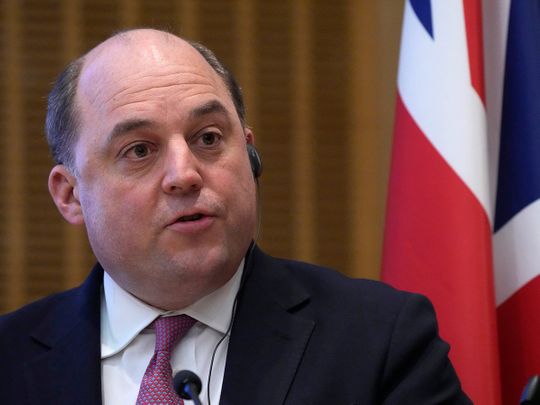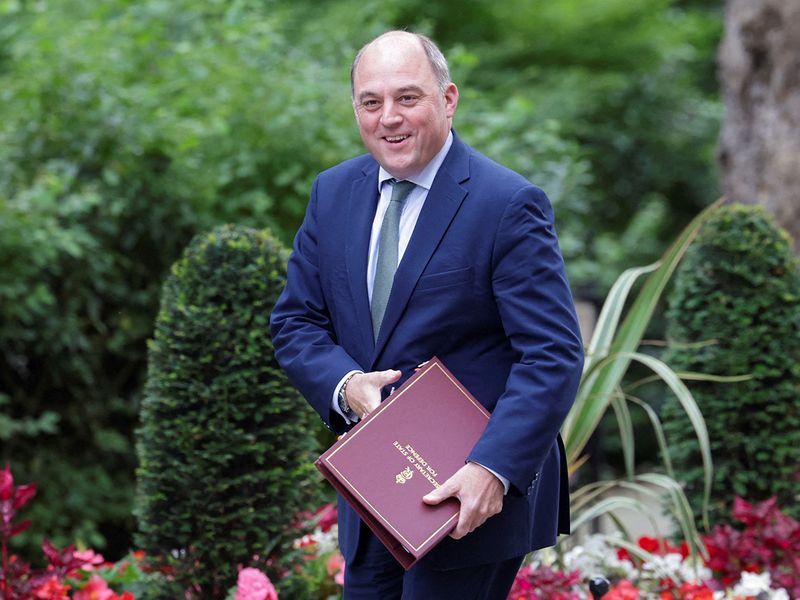
On Thursday, UK Prime Prime Minister Rishi Sunak did a marvellous impression of the Chief Entertainment Office on RMS Titanic, shuffling those deck chairs around.
So, with Grant Shapps taking over the UK’s defence portfolio, I have to admit that I am sad to see that Ben Wallace has decided to call it quits on his time in government.
By way of comparison, Shapps enters the Department of Defence in a year that has seen him hold four other senior government portfolios, having previously served as transport, energy, business secretaries — and was, for five days under the very brief government of Liz Truss, the home secretary.
Wallace? Well, he served a defence secretaries under the reigns of Johnson, Truss and Sunak and seemed to be the most effective and hard-working of all the Conservatives who have come and gone through cabinet positions over the past five chaotic years.
He always came across as a no-nonsense straight shooter who had a very full grasp of his portfolio.

He was, after all, a former military officer, one who knew his department inside out, from the group up. After all, you can’t ask for a better defence minister than someone who has worn the uniform, eaten army rations, lived in trenches, commanded teams and put his life on the line for his country.
And given all of the chaos that has been drought upon the government by the ministers themselves and their leaders’ determination to mess up the UK’s relationship with the European Union in its entirety, Wallace was above the fray.
When Johnson messed things up with his lack of truthfulness and not remembered the rules of the pandemic that he himself helped shape, there were many who quietly hoped that Wallace would be willing to stand as a candidate to lead the Conservatives.
And he could have won, such is the respect in which he is held by members of all factions of the Conservatives. Yes, it is a collection of factions.
But I, and many others, remain convinced, that he could have won a leadership contest — and would have provided a badly needed jolt of reality that Johnson, Truss and to a lesser extent Sunak, lacked.
The reason given publicly was that Wallace wanted to concentrate on the job of providing material, training and military support to the government of Ukraine over the past 18 months.
That’s entirely credible — and he has very much been the face of the UK’s support for Ukraine and the North Atlantic Treaty Organisation (Nato) — but perhaps it’s not entirely the whole case.
A Conservative with principles
While his military career is stellar, there were some in the Conservatives that he lacked a university degree and schooling from a prestigious educational facility favoured by the upper echelons of the party.
Personally speaking, I don’t care what a person’s education is as long as they can do the job that’s required of them — and if an officer gave me an order, the last thing I would do is question his social standing.
His departure from the House of Commons as soon as the next general election is called — it has to happen before January 2025 — signals the mire that has befallen the Conservatives.
Remember, this is a party that won a huge majority under Johnson — it’s largest since the heyday of Margaret Thatcher four decades ago, and now stares at political annihilation as a matter of certainty.
Wallace steps aside after dealing with some of the most challenging events to face any government certainly since the turn of the millennium if not longer. He was at the helm when the terror threat in the UK was at its highest in the aftermath of the horrific Manchester Arena bombing.
He was there to ensure that the military and its logistical expertise was on hand to meet the unprecedented demands on civilian infrastructure during the darkest days of the coronavirus lockdown.
When it came to withdrawing international forces from Afghanistan, he was there. So too during the poisoning of civilians on the streets of Salisbury.
And as the adult in the room, the serious minister seriously concerned about his department, he stood apart from the others who came and went around that cabinet table.
When Nato needs a new secretary general, his name will be mentioned, but his lack of being a national leader will likely scupper his chances then.
He was a good one. A hard worker. A Conservative with principles. A leader. I, for one, am sorry to see him leave politics








